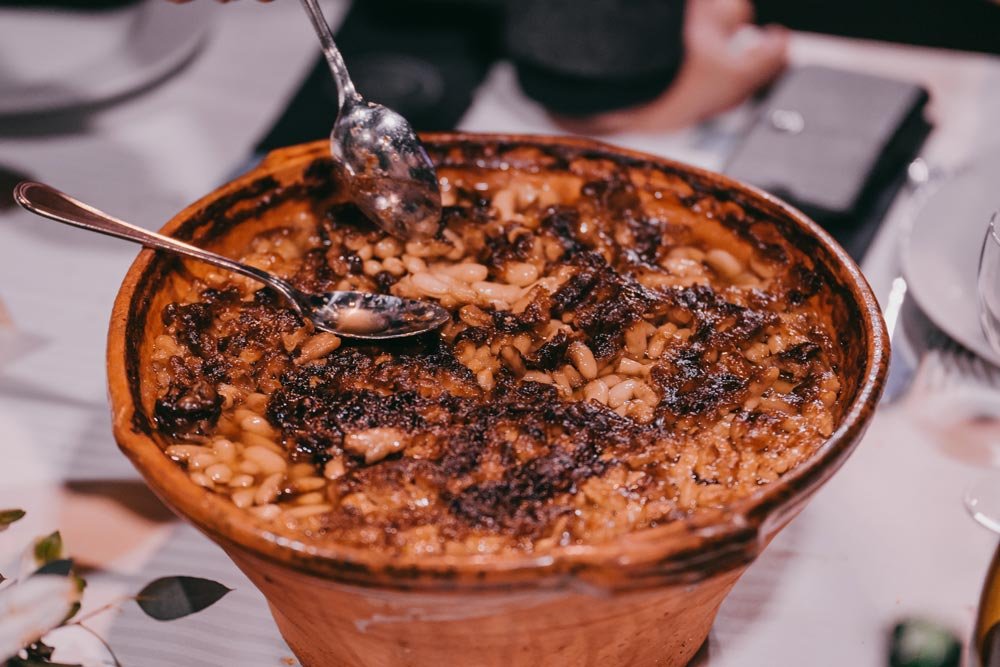Cassoulet: The Star Dish from Toulouse Defined
When discussing the gastronomic traditions of Southwestern France, one cannot overlook cassoulet, a hearty, slow-cooked casserole made from white beans, meats, and a medley of aromatic herbs. Let's delve into the history, recipe, and importance of this culinary emblem of Toulouse.
The History of Cassoulet
The inception of cassoulet can be traced back to the 16th century, with the arrival of 'white beans' from the New World. The beans found their new home in the fertile soils of the South of France, marking the beginnings of this recipe. However, it remains a mystery if a similar dish existed prior to the arrival of these beans.
Born amidst the rural landscapes, cassoulet was originally a country dish, primarily savored during winter months following the traditional pig festival and the preparation of goose and duck meats. The Cassoulet's cradle is thought to be the region of Castelnaudary, well-known for its goose and duck farming. The beans for the cassoulet came from Lauragais or the Pyrenees Arriegoises.
During the early days, the farmer's wives used to prepare the cassoulet at the week's commencement. They layered the cassoulet with rinds, beans, vegetables, and aromatic herbs, before dousing it generously with lard or goose and duck fat. A ham bone often added a subtle taste to the dish, and it was spiced liberally.
Throughout the week, the cassoulet served as a staple for the peasants, saving the women from daily cooking chores. Each day, the crust formed on the dish's surface was broken, and the missing ingredients replenished, keeping the pot always full. On Sundays, sausages and confits were added for a feast. This practice possibly gave rise to the colloquial expression "breaking the crust". Over time, each small town added its unique touch to the cassoulet.
The Quintessential Toulouse Cassoulet
The authentic Toulouse Cassoulet, the city's ultimate dish, is a rich, slow-cooked casserole, a classic reflection of its strong gastronomic heritage. The white beans, or haricots blancs, indispensable to the dish, are grown near the city and have roots in the neighboring commune of Castelnaudary.
The dish derives its name from the cassole, the traditional conical terracotta pot it's cooked in. Although the name is undisputed, the ingredients accompanying the beans are a matter of fervent debate.
However, in Toulouse, there's a general consensus on what constitutes a traditional cassoulet. A quintessential Toulouse Cassoulet must incorporate duck fat, duck confit, various forms of pork, and the renowned local Toulouse sausage, la saucisse de Toulouse.
The Traditional Recipe
In Toulouse, the cassoulet starts with the careful preparation of dried white beans, which are soaked overnight and then simmered in a flavorful broth. Pork rind, onions, carrots, and herbs like bay leaves and thyme infuse the broth with an aromatic depth that sets the flavor base for the cassoulet.
The meat component is a lavish affair, showcasing the rich culinary heritage of the region. Duck confit, a quintessential Toulouse specialty, lends its rich, robust flavors to the stew. The traditional saucisse de Toulouse, a sausage renowned for its coarse texture and high-quality pink pork, is another essential ingredient. Other forms of pork, such as fresh or smoked ham, pork belly, or ribs, can further enrich the cassoulet.
Once the meats are lightly browned and the beans tender, they are layered in the cassole with the flavorful broth. The cassoulet is then slow-cooked in the oven until a crust forms on the top. Breaking and pushing down this crust into the stew several times during the cooking process results in a uniquely textured and intensely flavored cassoulet, a true labor of love that's worth every minute spent.
Le Genty Magre’s cassoulet, winner of the Championat du Monde du Cassoulet 2023.
Toulouse's Annual Championat du Monde du Cassoulet
If you love cassoulet as much as Toulouse does, you'll be delighted to know about the Championat du Monde du Cassoulet - the World Championship of Cassoulet - an annual event that celebrates the city's beloved dish. The championship, born from the vibrant minds at the "Humour Club de Toulouse," spearheaded by local comedic celebrities Les Chevaliers du Fiel and their team, was introduced seven years ago.
Their goal was straightforward but substantial: to highlight the quintessential Toulouse specialty, the cassoulet, through a friendly competition involving renowned gastronomy professionals. The event invites five top-notch chefs, like Michel Sarran, to a grand finale, where they each prepare a cassoulet for a crowd of 150 individuals. The unique twist? It's all a blind tasting!
The audience gets the opportunity to vote and award the "People's Choice" to their favorite chef. Simultaneously, a jury consisting of experts and the previous year's winner casts their votes, again in a blind selection, to choose the laureate who will receive the grand jury prize. In 2023, the grand event saw the prestigious victory of Le Genty Magre (3 Rue Genty-Magre, 31000 Toulouse).
Why Cassoulet is Important to Southwestern Cuisine
The cassoulet symbolizes the rich gastronomic traditions of Southwestern France. The dish celebrates local ingredients, from the beans grown downriver from Toulouse to the region's famed meats. It brings together unique regional culinary practices, such as confit-making and sausage production, into a single pot.
Cassoulet represents not just a dish but a shared history, an embodiment of the region's culture and identity. It tells the tale of centuries-old traditions, of families gathering around a warm hearth, and of the simple joy of sharing a hearty meal. No visit to Toulouse would be complete without experiencing this signature dish, a testament to the city's vibrant culinary legacy. Indeed, cassoulet is a Toulouse food you simply cannot miss out on!








